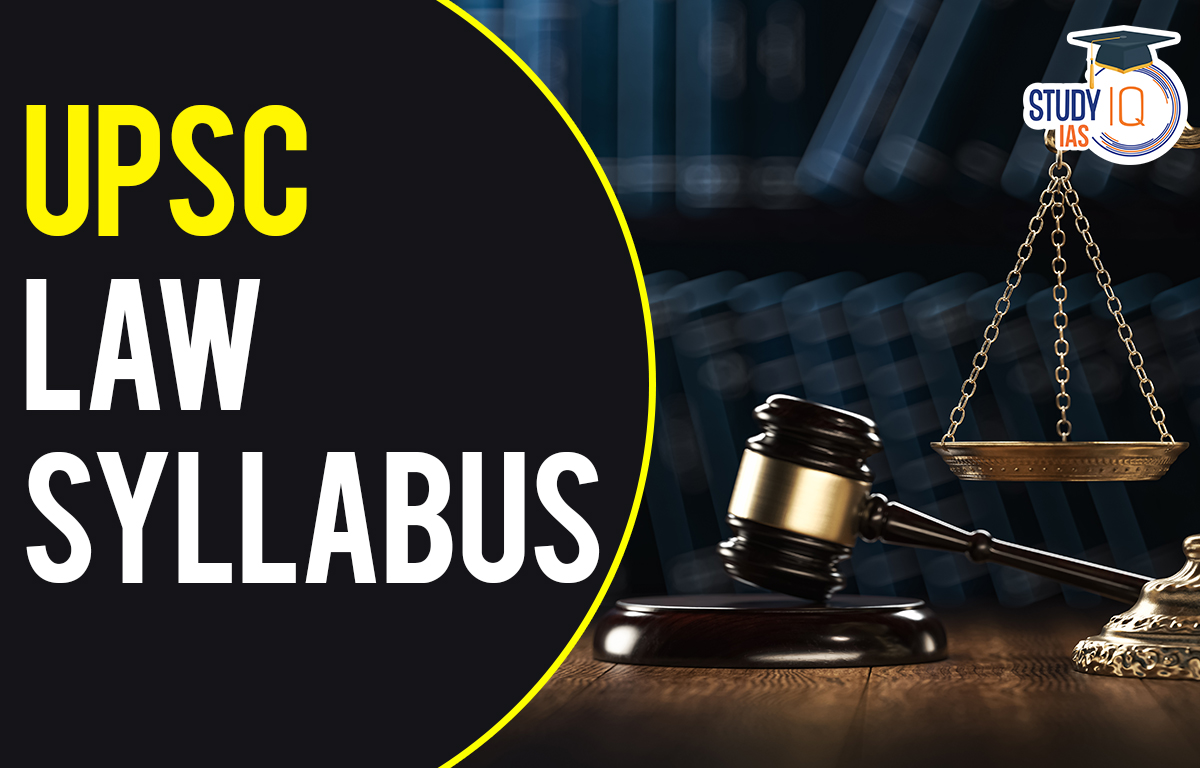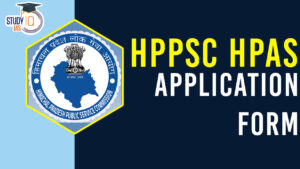Law is one of the optional subjects comprising two papers in the UPSC Civil Services Mains Examination (Optional Paper I and Paper II). The UPSC Law Optional Syllabus covers constitutional and administrative law, international law, criminal law, and many other topics. Candidates with a legal background will find the Syllabus helpful because the topics are more accessible to cover. UPSC Law Optional is a popular option among UPSC aspirants with legal, financial, management, and administrative backgrounds. This article provides you with complete information regarding the UPSC Law syllabus that’s required to prepare for the UPSC Syllabus 2025.
UPSC Law Optional Syllabus
Those aspiring to the UPSC who have a background in Law, finance, international trade, administration, or management frequently choose Law as an optional subject. One of the optional options that significantly affects one’s chances of success in both the UPSC Prelims and Mains is the Law. This is due to the fact that if you prepared well for General Studies and read up on law-related issues, it is feasible to score quite well in Law. Its popularity is due to the fact that General Studies and Law are heavily overlapping in the UPSC Syllabus.
Law Optional Syllabus Paper 1
Constitutional, Administrative, and International Law are covered in Paper 1 of the UPSC Law Optional Syllabus. Paper 1 carries 250 marks. Even if you do not have a legal background, you will be able to cover the following topics if you prepare the polity section thoroughly. You can find the detailed syllabus below:
Constitutional and Administrative Law
- Constitution and Constitutionalism: The distinctive features of the Constitution.
- Fundamental Rights – Public interest litigation; Legal Aid; Legal services authority.
- Relationship between fundamental rights, directive principles and fundamental duties.
- Constitutional position of the President and relation with the Council of Ministers.
- Governor and his powers.
- Supreme Court and High Courts:
- (a) Appointments and transfer.
- (b) Powers, functions and jurisdiction.
- Centre, States and local bodies:
- (a) Distribution of legislative powers between the Union and the States.
- (b) Local bodies.
- (c) Administrative relationship among Union, State and Local Bodies.
- (d) Eminent domain – State property – common property – community property.
- Legislative powers, privileges and immunities.
- Services under the Union and the States:
- (a) Recruitment and conditions of services; Constitutional safeguards; Administrative tribunals.
- (b) Union Public Service Commission and State Public Service Commissions – Power and functions
- (c) Election Commission – Power and functions.
- Emergency provisions.
- Amendment of the Constitution.
- Principles of natural justice – Emerging trends and judicial approach.
- Delegated legislation and its constitutionality.
- Separation of powers and constitutional governance.
- Judicial review of administrative action.
- Ombudsman: Lokayukta, Lokpal etc.
International Law
- Nature and definition of international law.
- Relationship between international law and municipal law.
- State recognition and state succession.
- Law of the sea: Inland waters, territorial sea, contiguous zone, continental shelf, exclusive economic zone, high seas.
- Individuals: Nationality, statelessness; Human rights and procedures available for their enforcement.
- Territorial jurisdiction of States, extradition and asylum.
- Treaties: Formation, application, termination and reservation.
- United Nations: Its principal organs, powers, functions and reform.
- Peaceful settlement of disputes – different modes.
- Lawful recourse to force: aggression, self-defence, intervention.
- Fundamental principles of international humanitarian law – International conventions and contemporary developments.
- Legality of the use of nuclear weapons; ban on testing of nuclear weapons; Nuclear – non proliferation treaty, CTBT.
- International terrorism, state sponsored terrorism, hijacking, international criminal court.
- New international economic order and monetary law: WTO, TRIPS, GATT, IMF, World Bank.
- Protection and improvement of the human environment: International efforts.
Candidate Solve the UPSC Previous Year Question Paper Here!
Law Optional Syllabus Paper 2
The Law of Crimes, the Law of Torts, and many other topics are covered in detail in the UPSC Syllabus for Paper 2. To create a scoring response, the themes must be relevant to current events. You can find the detailed syllabus for Paper 2 below: Law of Crimes
- General principles of criminal liability: Mens rea and actus reus, mens rea in statutory offences.
- Kinds of punishment and emerging trends as to abolition of capital punishment.
- Preparation and criminal attempt.
- General exceptions.
- Joint and constructive liability.
- Abetment.
- Criminal conspiracy.
- Offences against the State.
- Offences against public tranquility.
- Offences against human body.
- Offences against property.
- Offences against women.
- Defamation.
- Prevention of Corruption Act, 1988.
- Protection of Civil Rights Act 1955 and subsequent legislative developments.
- Plea bargaining.
Law of Torts
- Nature and definition.
- Liability based upon fault and strict liability; Absolute liability.
- Vicarious liability including State liability.
- General defences.
- Joint tort feasors.
- Remedies.
- Negligence.
- Defamation.
- Nuisance.
- Conspiracy.
- False imprisonment.
- Malicious prosecution.
- Consumer Protection Act, 1986.
Law of Contracts and Mercantile Law
- Nature and formation of contract/E-contract.
- Factors vitiating free consent.
- Void, voidable, illegal and unenforceable agreements.
- Performance and discharge of contracts.
- Quasi-contracts.
- Consequences of breach of contract.
- Contract of indemnity, guarantee and insurance.
- Contract of agency.
- Sale of goods and hire purchase.
- Formation and dissolution of partnership.
- Negotiable Instruments Act, 1881.
- Arbitration and Conciliation Act, 1996.
- Standard form contracts.
Contemporary Legal Developments
- Public Interest Litigation.
- Intellectual property rights—Concept, types/prospects.
- Information Technology Law including Cyber Laws—Concept, purpose/prospects.
- Competition Law—Concept, purpose/prospects.
- Alternate Dispute Resolution—Concept, types/prospects.
- Major statutes concerning environmental law.
- Right to Information Act.
- Trial by media.
This article discusses the complete UPSC Law syllabus for UPSC/IAS. candidates can download the PDF in this article. For more details related to UPSC Examination; students can visit the official website of StudyIQ UPSC Online Coaching.


 JSSC CGL Recruitment 2025: Application P...
JSSC CGL Recruitment 2025: Application P...
 HPPSC HPAS Application Form 2025, Apply ...
HPPSC HPAS Application Form 2025, Apply ...
 Grameen Credit Score (GCS), Objectives a...
Grameen Credit Score (GCS), Objectives a...





















